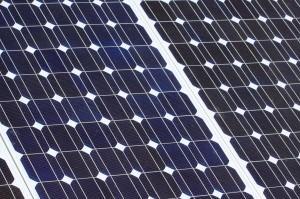 Japan has reached an important initial milestone in its efforts to advance renewable energy generation. According to data released on November 16 by Japan’s Ministry of Economy, Trade and Industry (METI), renewable energy projects that went on-line between April and October 2012 had a combined output of 1.15 million kilowatts—roughly equivalent to the amount of energy generated by one nuclear reactor, as noted in Japan’s Nikkei.
Japan has reached an important initial milestone in its efforts to advance renewable energy generation. According to data released on November 16 by Japan’s Ministry of Economy, Trade and Industry (METI), renewable energy projects that went on-line between April and October 2012 had a combined output of 1.15 million kilowatts—roughly equivalent to the amount of energy generated by one nuclear reactor, as noted in Japan’s Nikkei.
According to METI, solar power accounted for over 90 percent of this total output. Residential solar energy projects made up 886,000 kilowatts of this total, while other solar energy projects such as mega-solar facilities comprised 240,000 kilowatts. Separate from solar power, wind power projects accounted for 14,000 kilowatts and hydropower projects made up about 3,000 kilowatts of the total.
At a glance, there are multiple takeaways from these totals. One significant driver of the rapid growth in new solar power projects is the implementation of Japan’s feed-in tariff (FIT) on July 1 of this year. Major new investments in mega-solar facilities were announced soon after Japan’s government approved the FIT last year, and as these facilities come on line their output should increase significantly. However, it is noteworthy that the vast majority of new capacity is in residential projects. This reflects a broad range of factors, from the rapidly falling costs of installing residential PV systems, to incentive programs such as Kanagawa Prefecture’s Solar Bank initiative, and arguably to people trying to do their part to reduce any need for reliance on nuclear power. And in some instances—such as the widely-profiled case of Sanno village—it just makes good business sense.
This heavy trend towards new solar projects—as compared to wind, geothermal, biomass, and small hydropower, all of which are focus areas of Japan’s push for increasing renewable energy generation—reflects conditions and challenges that merit their own separate posts.
Regardless of the energy source, sustaining this rapid growth will be key to the continued success of these policies. Yet it comes at a time of increasing uncertainty in Japanese domestic politics, including as Japan grapples with the future of its energy policy. It is too early to anticipate the outcomes of Japan’s upcoming parliamentary Lower House elections on December 16, and what directions the next government will take on energy. Political parties in Japan and key constituencies are divided over the future of nuclear power as part of Japan’s energy mix, in the face of significant and growing public opposition to continued reliance on nuclear energy. How this debate moves forward, and its interplay with broader discussion of energy policy reform to decouple energy supply and distribution, could significantly shape the future trajectory of renewable energy resources in Japan.

